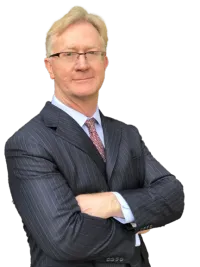
PODCAST INTERVIEW: IF YOU COULD TURN BACK TIME, WHAT WOULD YOU DO DIFFERENTLY?
I had the privilege to sit down with Christopher M. Ekrem MBA, FACHE with EqualizeRCM to discuss lessons learned as a healthcare executive. In the short video below, I share three key things I would have done differently if I could turn back time.
Chris Ekrem: Think that was a song probably in the past wasn't. So what, what three things would you do differently as it relates to your roles in revenue cycle and finance, do you think?
Rodney Reider: Yeah, I've spent time thinking about that in the past and even more recently, how can I improve? That's where it comes to as a leader.
And I think if I could do it differently if I was able to go back and see. As the person heading up decision support or in the finance leadership roles, I would have really made a point of partnering better with operations. I think that's key. If I would've partnered better, it would have been less just showing him a budget time and saying, here's what we got to do.
It would have been all year long, looking at how I could have been a partner or joint venture partner in solving the problems for operating. And then there's no surprises when budget counts. You're not saying we need to cut this many FTEs. You've been working together all year to know how you're running efficiently, what you're focusing on.
And you're hearing all year too. Maybe it's do your moires that you're looking [00:01:00] at. How do I make that partnership? So that each side is being able to educate the other, that whole time throughout the year. That way there are never any surprises that you've already been working on this. You just flow into the next year, next fiscal year, and then you can make things.
That'd be a key thing. How do we, how do we help educate and support each other? The second thing I wish I would've done more of, cause we've been doing that in the more recent years. But if I look back, you know, 20, 25 years, how could I partner better with the payers? How can we have together been more innovative to make things happen, to support our communities and to support the employers in the area.
We'd both have the same goals. We both have the same needs. To make sure that we're controlling costs, right care, right place, right time at the same time, what can we do to make sure people are getting their needs? And the best part could have been and should be is your payer. That's a great part. We look for the future and then in tying in that alignment, and then along those lines, I, I wish I would [00:02:00] have when I took over certain positions, brought in an outside organization right away to do a review for me on the revenue cycle.
Now. If I can have somebody come in and step right away and say, here's some gaps, here's some things you can look at. Here's some, some efficiencies or some, uh, artificial intelligence you can put in, you know, there's machine learning, any of that stuff, more terminology today. But over the years, these things have been progressing to make us better.
And one of the stats that have always has always stuck with me is along the lines of the. The highest performing organizations in revenue cycle management are actually six points, less than cost than the lowest-performing. So it's not a matter of money being spent. It's a matter of how are you spending the money, obviously, but how are you running efficiently and focusing on the right thing?
Chris Ekrem: So it sounds like you would have definitely done more partnering. Stronger relationships and, and [00:03:00] really used other resources to leverage your time and, and efforts as well.
Rodney Reider: Yeah, exactly. Those would be the three key things I would've done.
Tagged: podcast, leadership, healthcare, growth, personal growth
Mindset, Skillset, Peopleset Leadership

